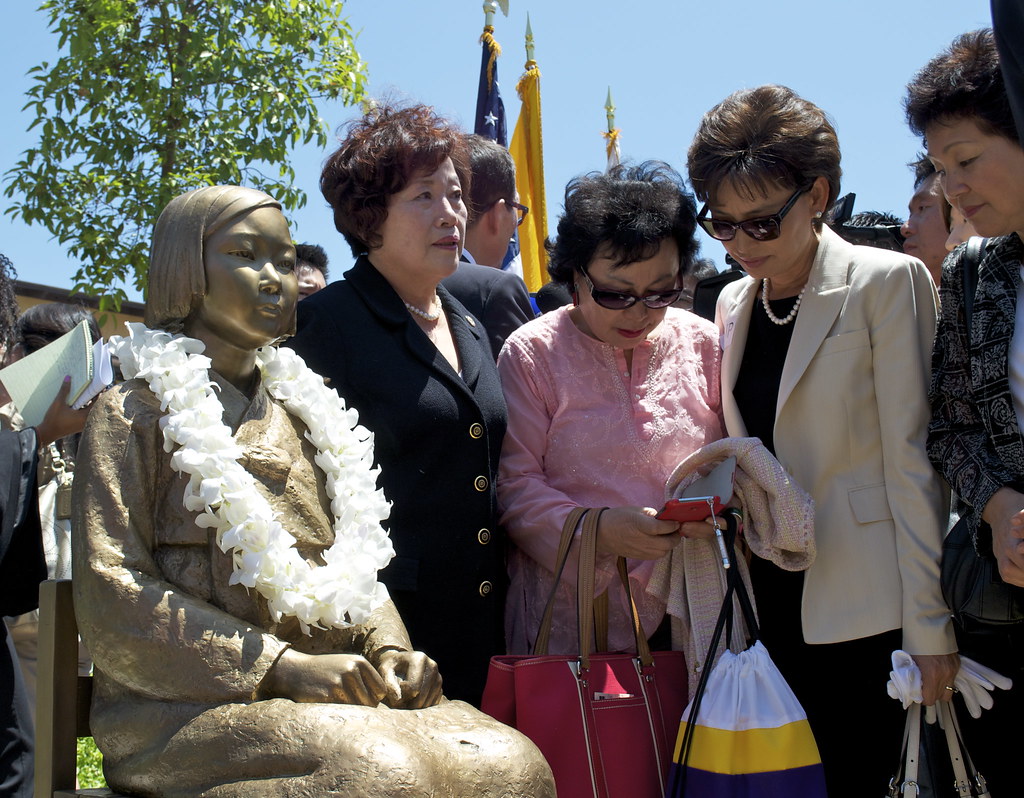 |
| Image: Flickr User - Melissa Wall |
By Shannon Tiezzi
Critics reject the landmark deal as political expediency that does not adequately address the victims’ concerns.
On Monday, Japan and South Korea announced a landmark agreement on the issue of “comfort women,” women coerced into sexual slavery for the Imperial Japanese Army during World War II. The agreement saw Prime Minister Shinzo Abe apologize for the women’s suffering and the government of Japan agree to provide compensation to a fund to be established by the Korean government. In doing so, the deal potentially lays to rest one of the most contentious issues in Japan-South Korea relations – but not everyone is on board.
Most notably, many of the “comfort women” themselves were outspoken in their denunciation of the deal. One of the women, Lee Yong-soo, told reporters that “the agreement does not reflect the views of former comfort women.” She promised to “ignore it completely.”
“We are not craving for money,” she said, dismissing the $8.3 million fund negotiated between Japan and South Korea. “What we demand is that Japan make official reparations for the crime it had committed.” For Lee and other critics, Abe’s apology does not go far enough in officially acknowledging Japan’s legal responsibility for the women’s suffering.
The Korean Council for the Women Drafted for Military Sexual Slavery in Japan was even more outspoken, calling the deal the result of “humiliating diplomacy” that saw Seoul give up too much for too little. “The agreement is nothing but a diplomatic collusion that thoroughly betrayed the wishes of comfort women and the South Korean people,” the group said in a statement.
Read the full story at The Diplomat
